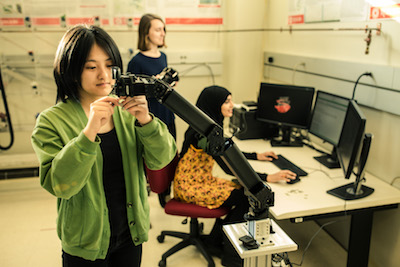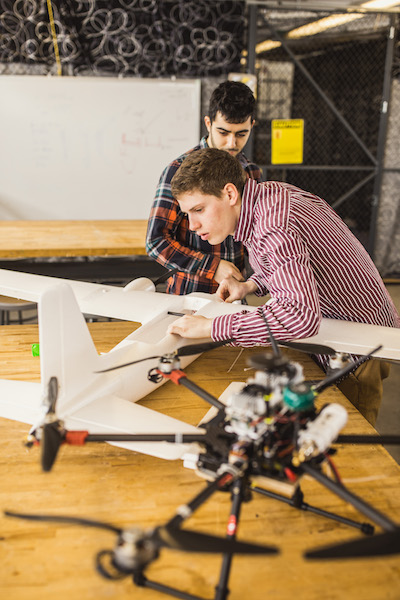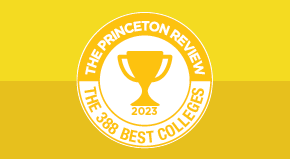Presented by Rutgers School of Engineering
There are a variety of exciting STEM fields (Science, Technology, Engineering and Math) where students can pursue a college major that leads to a rewarding and interesting career. The field of Engineering offers many majors that appeal to students interested in applying their knowledge of science, math and technology to the design, building, and use of machines and structures. Learn more about engineering majors and research trends in the field in our interview with Thomas N. Farris, Dean of Rutgers University-New Brunswick School of Engineering.

Interested in STEM? Consider Some of the Many Engineering Majors
Q: What are some of the options for Engineering majors? With so many fields within engineering, how do students choose their specific major?
A: Engineering is an exciting field that offers many pursuits based on personal and career interests. While some high school graduates might know they want to be a civil engineer, for example, others might be interested in the broad field, but need to learn more about the options before they focus their engineering studies.
This chance for discovery is built into the first year Engineering program at Rutgers, where students take an Introduction to Engineering course that covers all of the options. Students often uncover a love for something that they knew little about, such as materials science or industrial engineering. The range of engineering majors include:
- aerospace engineering,
- applied sciences,
- bioenvironmental engineering,
- biomedical engineering,
- chemical and biochemical engineering,
- civil and environmental engineering,
- electrical and computer engineering,
- industrial and systems engineering,
- materials science and engineering,
- mechanical engineering,
- and packaging engineering.
Q: Apart from a traditional four-year bachelor’s degree, what options do engineering majors have to accelerate their learning, through research or other degree program options?
A: While many students choose to major in a specific field in engineering with a Bachelor of Science degree, there are a number of colleges and universities that offer a five-year program that builds in a bachelor’s degree and a master’s degree. At Rutgers, we offer a dual degree program which students complete in five years, and graduate with a BS / Master’s. Some students double major in engineering and a field outside of engineering, or another STEM field. Rutgers also offers an honors program for qualified students that bundles in research opportunities, mentoring, and living / learning groups.
It’s best to research all of the possibilities a college or university offers around engineering, including research areas of focus and opportunities in the field, when choosing your program. Questions to think about: will you have the opportunity to participate in faculty research? Contribute to published research? Even if you don’t know which specific field of engineering you will choose yet, understanding your options will give you an advantage down the road.
Engineering Trends, Research, and Student Successes

Q: Speaking of research, what trends in engineering do you see? What kinds of research are your faculty conducting?
A: Advanced manufacturing, 5G wireless technology, health care innovation that crosses disciplines (mechanical/electrical to biomedical), and drone technology are among the exciting new areas that Rutgers faculty are pursuing. The school has a continuous manufacturing lab on campus for innovating pharmaceutical manufacturing, working in conjunction with Janssen Pharmaceuticals and the Food and Drug Administration. A number of innovations are being advanced that involve joint research across engineering departments, including electroporation that allows cell manipulation to introduce cancer treatment therapeutics. Drone research includes the innovative Naviator that can fly and swim, along with a host of applications for bridge inspection, water safety management, crop management, and more. The next generation of wireless technology is being realized with testbeds in New York City. Biofuel production that involves less energy in both growing and producing fuels is taking sustainability to new heights.
In developing a curriculum for the 21 st century, the school is looking ahead to areas expecting a large retirement wave of workers, particularly the railroad industry, supply chain engineering, and energy. For example, Prof. Xiang Liu is working closely with those in the railroad industry to develop a program that will prepare students to contribute to an evolving and growing industry. Rutgers’s location is ideally suited to make an impact in this area. Our vicinity includes light rail, state and national commuter rail service, and freight lines.
Q: What are some examples of student successes out of the Rutgers Engineering program?
A: Two engineering student teams have won regional Hult Prize competitions for sustainable water resource management, advancing to a summer program in London after which a winner will be announced to pursue their innovation with $1 million in funding. Another student team won $50 thousand in a competition to develop a point of care innovation with third world applications from Massachusetts General Hospital.
Rutgers students are securing jobs among Fortune 500 and 100 companies, research organizations, and governmental institutions. They are also pursuing advanced degrees at leading universities. Many students find jobs through internships and co-ops, on campus interviews, alumni engagement, and direct recruitment.
Q: What is one piece of advice you would give a high school student interested in engineering?
Be open to what you don’t know. Engineering provides a solid basis that can lead to success in a multitude of fields and careers. Explore the possibilities across all the engineering disciplines. You never know what might surprise you and ignite a passion you didn't know you had.
Explore Colleges For You
Connect with our featured colleges to find schools that both match your interests and are looking for students like you.
Get Started on Athletic Scholarships & Recruiting!
Join athletes who were discovered, recruited & often received scholarships after connecting with NCSA's 42,000 strong network of coaches.
Best 388 Colleges
154,000 students rate everything from their professors to their campus social scene.



